‘Football is happiness’: A day in the new life of Lilian Thuram and his wide-reaching fight for equality
Thuram agreed to be shadowed and interviewed by Pete Jenson as he spent a day with some of the 2,624 refugees in the Skaramagas refugee camp in Athens, which opened in March 2016
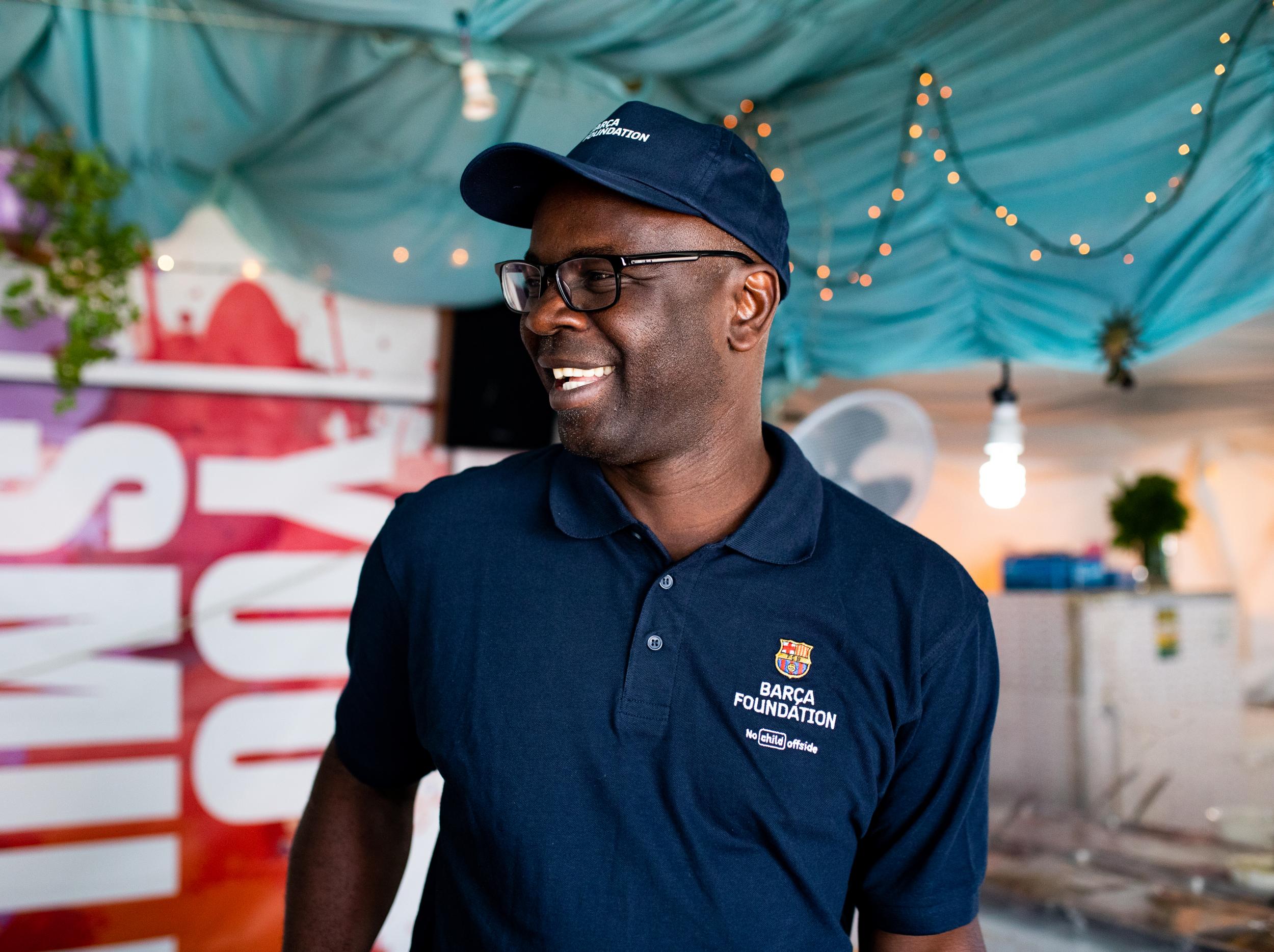
Your support helps us to tell the story
From reproductive rights to climate change to Big Tech, The Independent is on the ground when the story is developing. Whether it's investigating the financials of Elon Musk's pro-Trump PAC or producing our latest documentary, 'The A Word', which shines a light on the American women fighting for reproductive rights, we know how important it is to parse out the facts from the messaging.
At such a critical moment in US history, we need reporters on the ground. Your donation allows us to keep sending journalists to speak to both sides of the story.
The Independent is trusted by Americans across the entire political spectrum. And unlike many other quality news outlets, we choose not to lock Americans out of our reporting and analysis with paywalls. We believe quality journalism should be available to everyone, paid for by those who can afford it.
Your support makes all the difference.As the Women's World Cup in France temporarily puts the women’s game in the same spotlight as its male counterpart, there is another female footballer taking centre stage 3,000 kilometres away in a refugee camp just outside of Athens.
Fatima is 12-years-old. She is from Afghanistan and she wants to be a professional footballer.
She’s taking part in FC Barcelona’s ‘FutbolNet’ social education programme in the Skaramagas refugee camp. It is a special day because Barça Foundation ambassador and French World Cup winner Lilian Thuram will be taking the session.
She sits down to do an interview with Barça TV and is asked to count to three for a microphone check. She proudly counts to 17 in perfect English just to show she can. “It’s a unique feeling,” she says of the FutbolNet programme. “When I’m out there playing, I feel like Barcelona are watching me.”
At the end of her interview, delivered like a professional, she starts to cry. “It’s happiness not sadness,” says one monitor. She is overwhelmed.
Later in the day when Thuram brings the training session to a close there is a penalty shoot-out and a huge shout goes up when Fatima scores.
“What do any of us play for sport for?” Thuram asks me afterwards. “We do it to escape for a bit from our stresses and worries.”
***
Twice a week the children here participate in FutbolNet sessions. The program is designed to promote their emotional well-being. They learn respect and values as they run around after a football in the sunshine. Feelings of fear and aggressive behaviour have been reduced and the programme has harnessed tolerance, understanding and friendships across ethnic and religious lines.
Every session begins with the children sat in a circle. One of five key values (teamwork, respect, ambition, humility and effort) is picked as the theme. This time, it’s respect. The children are asked how respect might be nurtured through sport. Games and drills are designed to provoke answers. There is another big circle at the end of the session when the children are asked what they have learned.
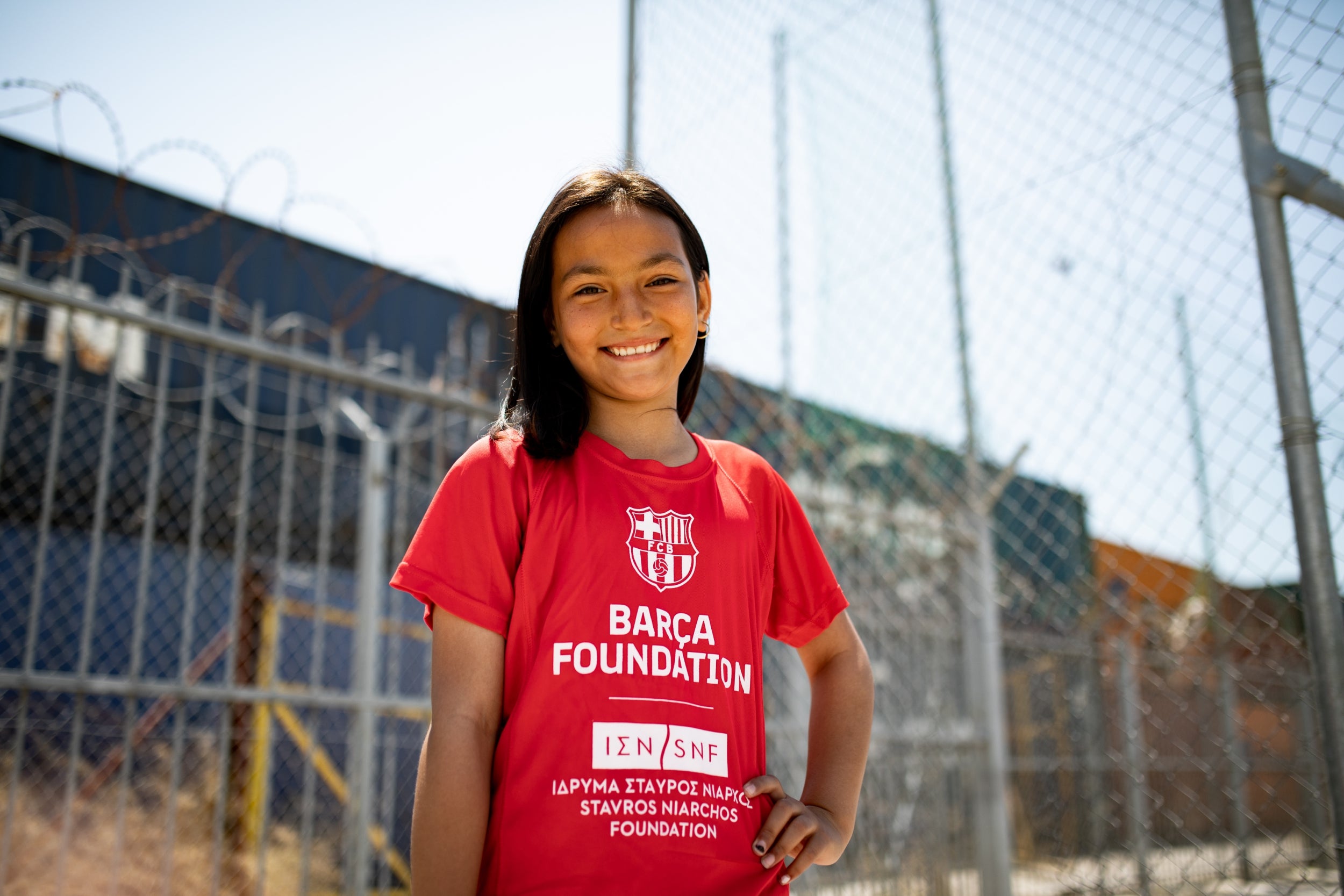
Equality is another key value at the heart of the project. Girls don’t always have it easy when these projects kick-off but minds get changed along the way. One tool used early on in programmes is to award teams two goals instead of one when a girl scores. That soon ends the problem of boys not wanting girls in their team.
When Thuram addresses the circle at the end of the session he tells the girls they are not to think they are inferior to the boys and he tells the boys not to think they are superior to the girls. It’s a message that, like his visit, they are not going to forget.
***
He has agreed to be shadowed and interviewed by The Independent as he spends a day with some of the 2,624 refugees (from 28 countries) who live here, behind the high walls and razor wire, of the camp which opened in March 2016.
At the gate where we sign in there are guard dogs barking and one family of five signs out for the day.
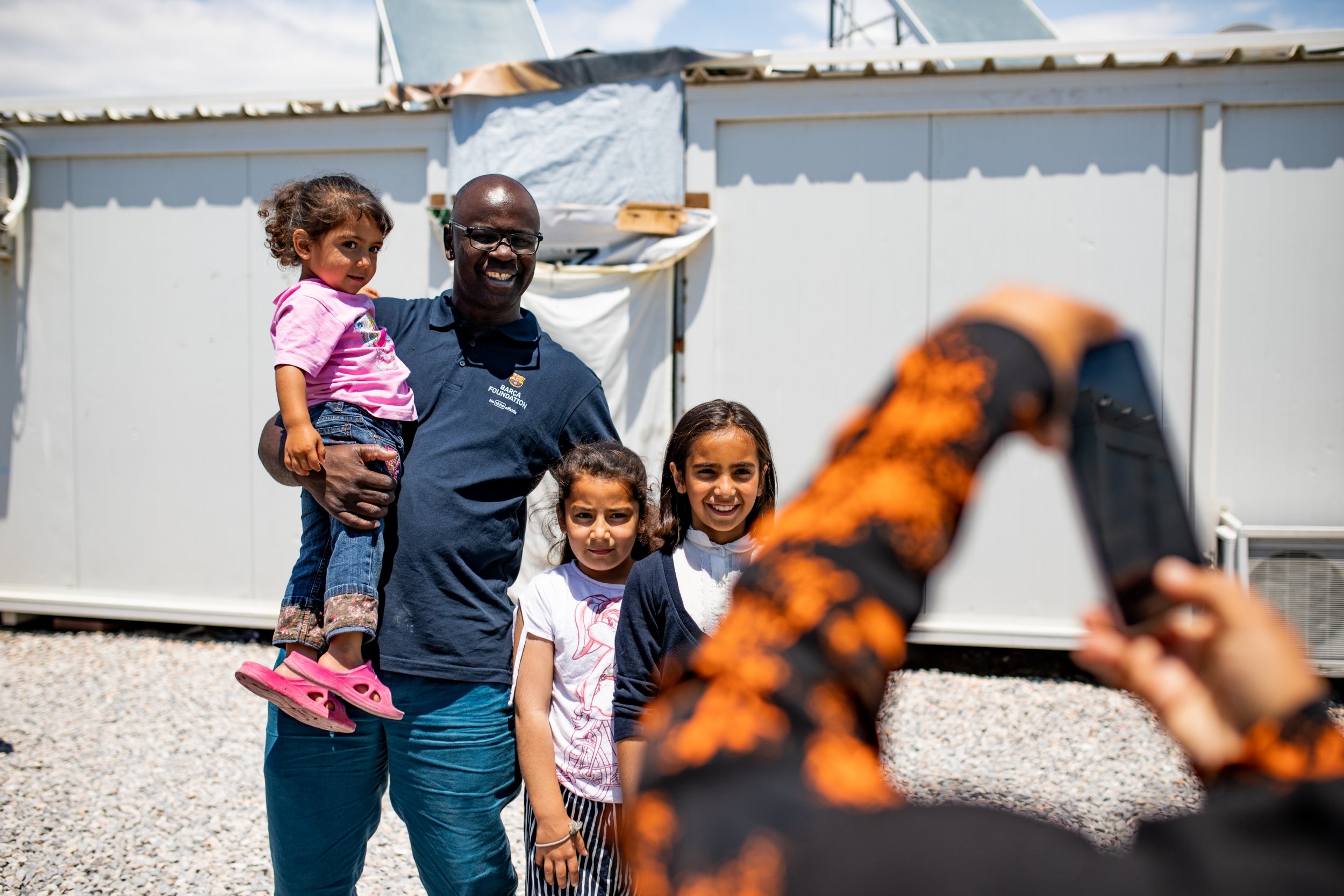
Thuram approaches one small boy in a Barcelona kit. “Messi,” he says responding to the name on the back of the boy’s shirt.
At first he’s timid but when Thuram teaches him a game involving holding two hands out and turning them over quickly to slap your opponent’s hand before he can withdraw, the boy loses all of his shyness. For a while he start following Thuram around before he is called back by his proud parents.
There is a playground here just inside the camp but the swing-frames no longer have swings on them. There is small library that does have a modest supply of books and there is a market garden.
The response to cameras from other media here is often to request firmly not to be filmed although the presence of Thuram changes the mood.
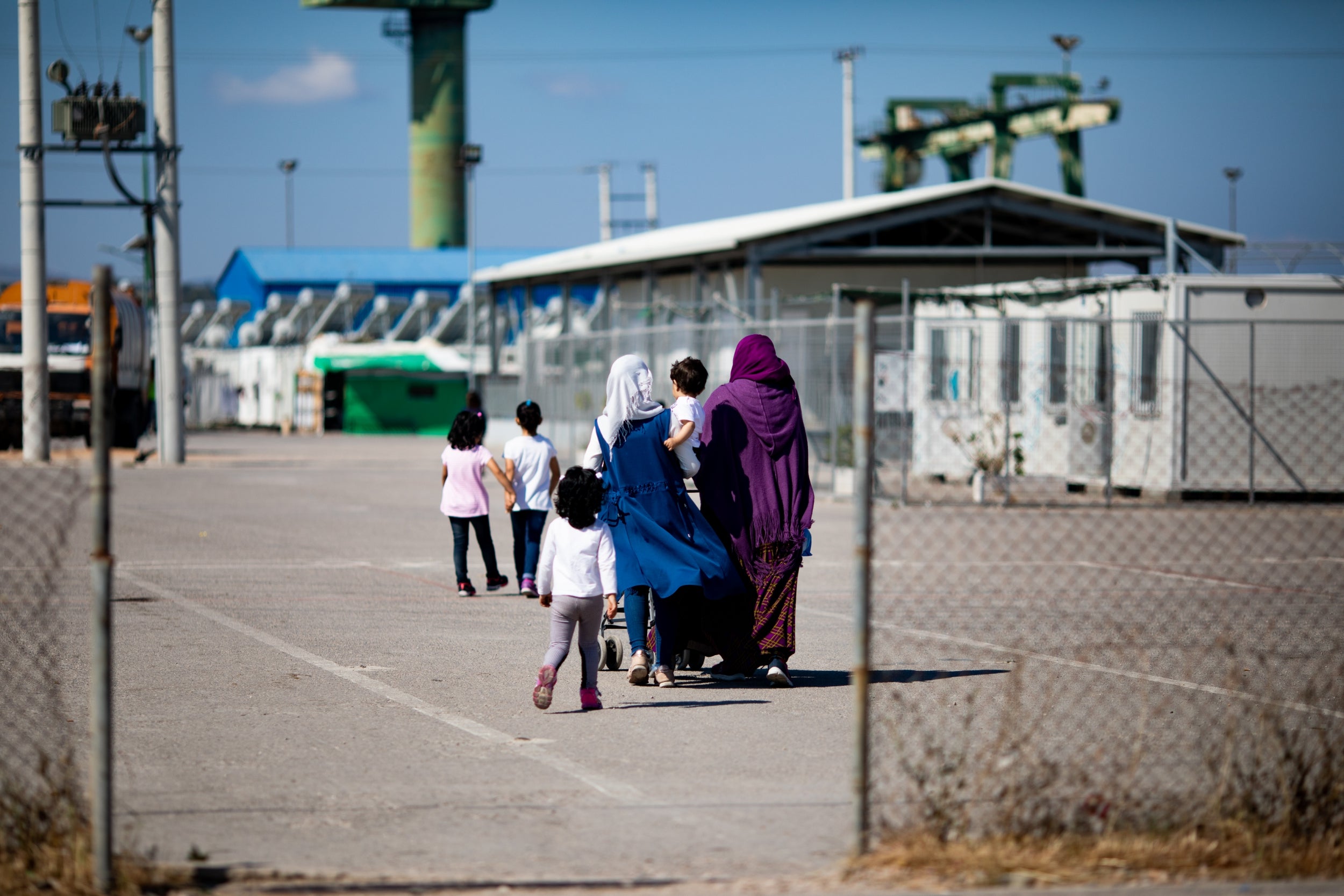
Where was he playing when he was the same age as these children? “Up until the age of nine I was in Guadalupe and I played in the street, at the back of the house or in the fields with my friends,” he says.
“Then when I arrived to France I played in the square where they held the Sunday market and when I was 11 I started playing for a team. When you are young you find a space and you play – football is happiness; and for a kid that’s the most important thing.”
***
Constantinos Machairas is the managing director of the NGO Organization Earth, responsible for the camp’s day-to-day running. He tells Thuram that in 2015 there was an exodus escaping Syria and surrounding countries, via Turkey and across the Greek islands – including Lesbos – before arriving in Athens.
“Nobody wanted to stay” he says. “Where is Denmark? Where is Germany” were the questions being asked. But Macedonia closed its borders and people were ‘trapped’ in Athens.
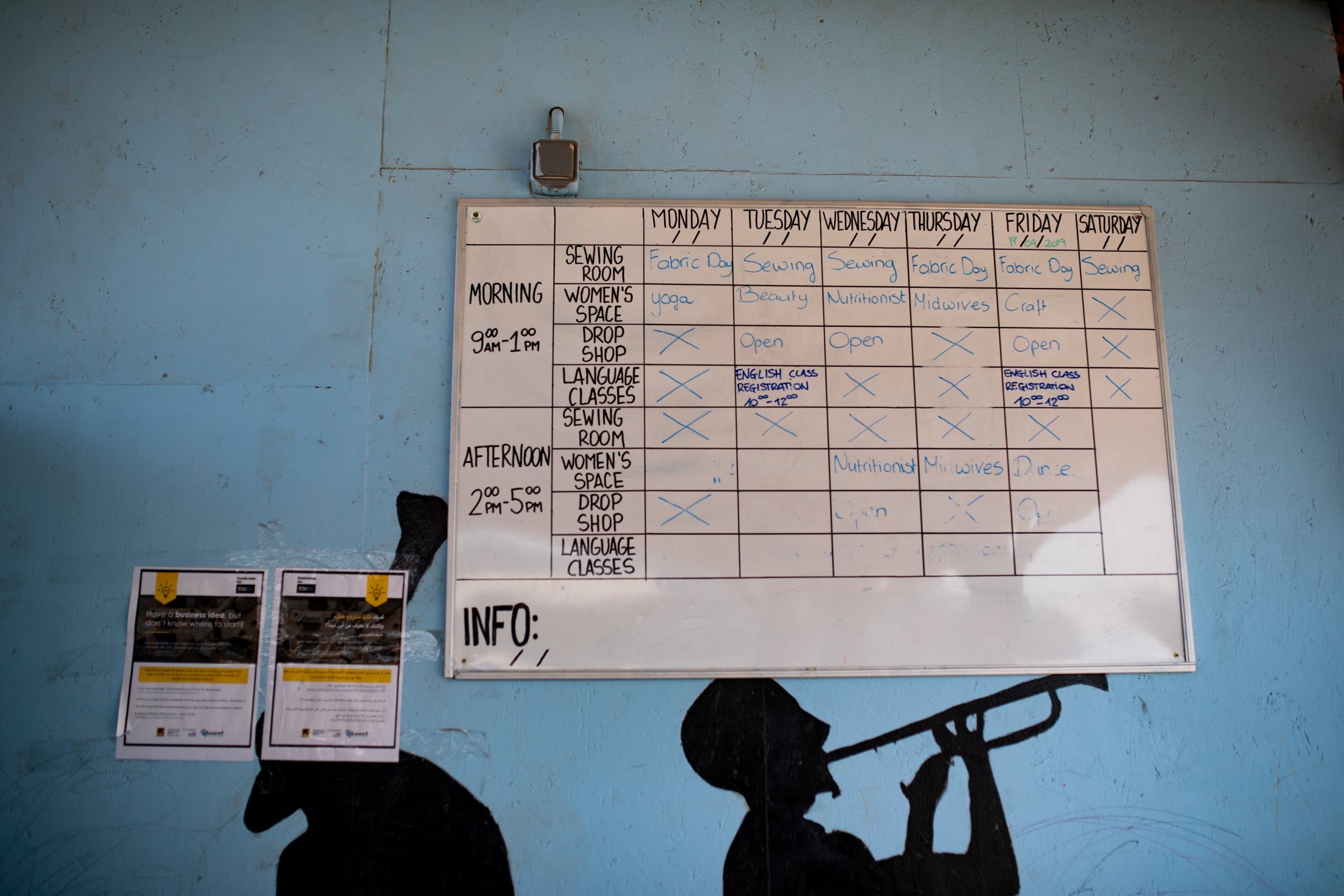
They headed to the city’s major ports where the people traffickers were. “First it was 50 people, then it was 500, then it was 3,000,” he says.
Something had to be done. The Greek government, with EU help, built two refugee camps in Athens. Of the 3,000 people given shelter a 1,000 were kids, still in shock. There were lots of five and six-year-olds who left Syria never having been to school. They desperately needed some sort of framework, and some fun.
Constantinos says in the early days the camp was fraught with tension. There were a lot of young people in a small space with nothing to do. One day someone thought it would be a good idea to throw a ball in for the kids and as Constantinos puts it: “We saw them smile for the first time.”
***
This is not Thuram’s first refugee camp experience. He went to another Barça Foundation project in a Lebanon camp last May. “It’s always the same when you arrive,” he says. “It’s a feeling of sadness. And it’s important not to get accustomed because this is not normal. These are places where opportunity is closed off; where dreams are shut down.
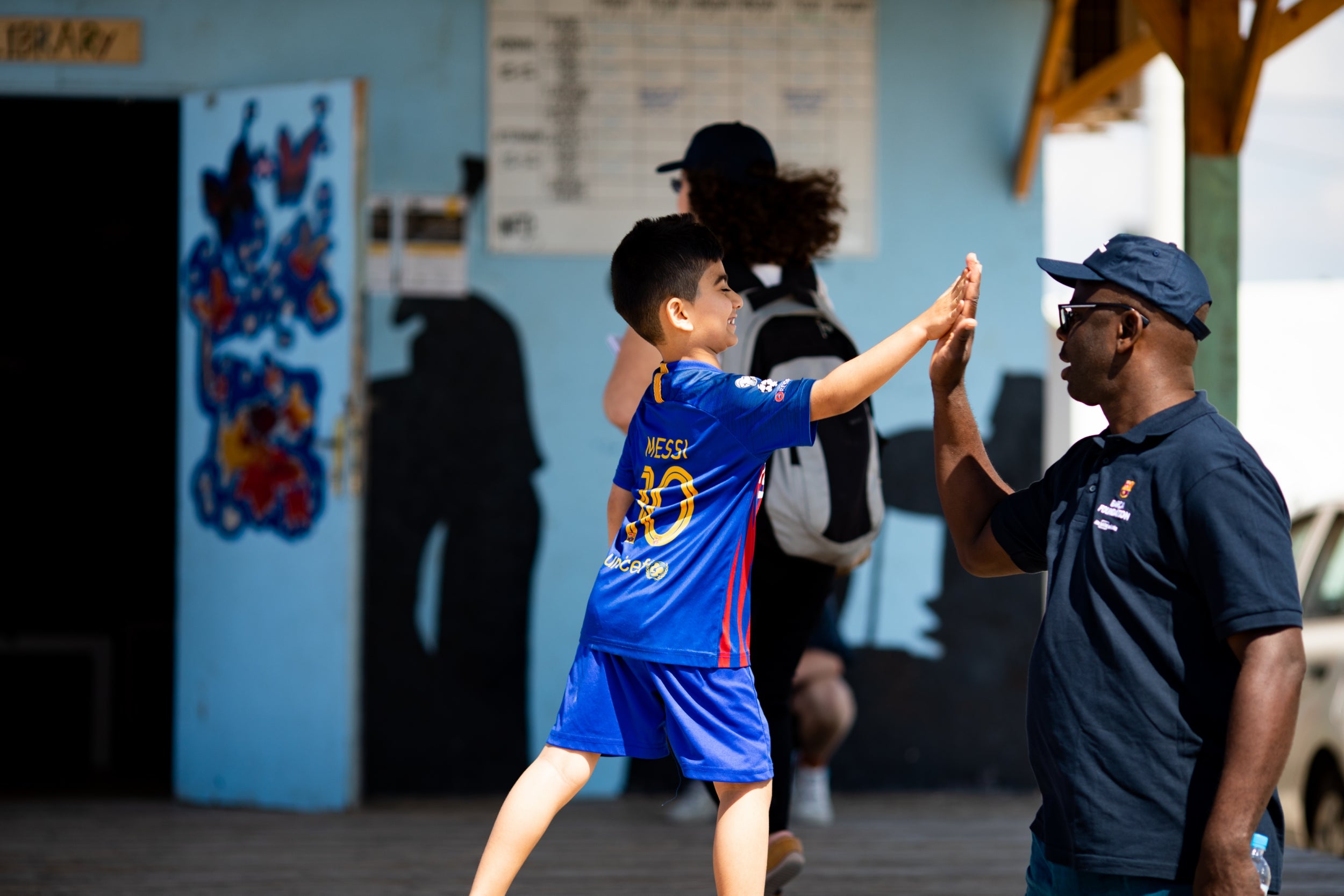
“People leave their countries saying to themselves: I’m going to go through something very difficult in order to improve the life of my children. And they arrive here and those dreams reach a dead end.”
“And that’s hard psychologically for me to see as a father. The children play and they don’t realise it but for the parents it’s tough. We all want liberty. When somebody does something wrong in our society we take away their liberty. These people have done nothing wrong but they are being told: you are illegal here.”
***
Two refugees I speak to – Reza and Hussein – have been trained by the Barça Foundation to become FutbolNet coaches. Hussein is a 26-year who played professionally in Palestine. “I came here in 2016, travelling from Palestine to Jordan to Turkey to the Greek island of Samos,” he says.
He now turns out for Hope Refugee FC playing other amateur teams in Athens. “I see the kids running behind the ball and they forget all their problems. They can’t wait for the sessions. This helps the children not be afraid to have communication with other children.”
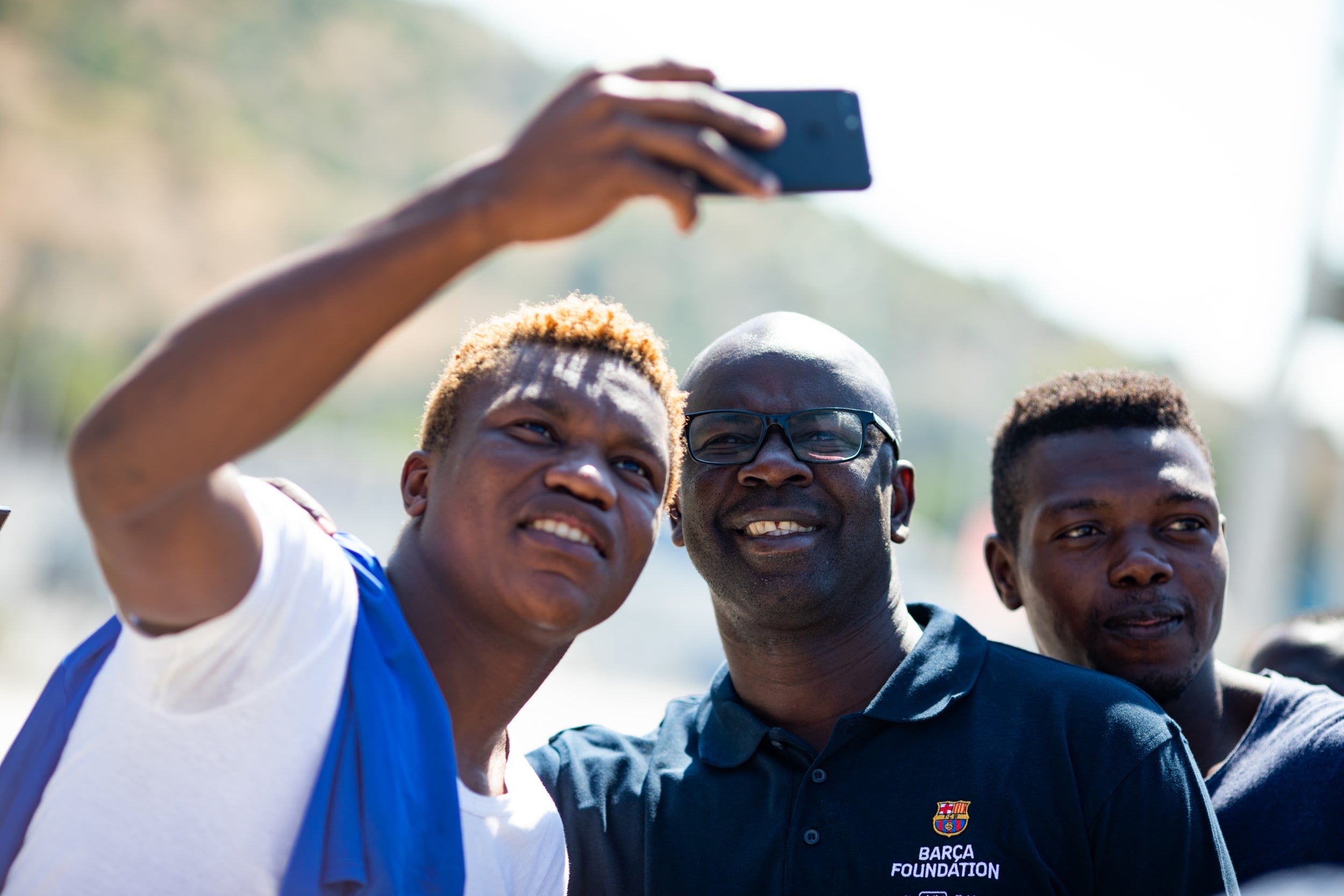
Reza is also a player. He is just 21. He’s a striker. “Fast,” he says. He proudly recalls facing Thuram in a friendly for Hope Refugee FC last year and dribbling around him before scoring. He says he was showing the video of the goal to friends for weeks.
He was brought up in Afghanistan but grew up in Iran. He speaks five languages and is learning French. He’ll be back out on this pitch tonight after the sun goes down to play with other residents. Do they ever pick teams along national lines I ask. “Never, never, never!” says Reza. These people’s lives have been shattered by war. Tribalism – even in a trivial sporting context – is to be avoided.
***
Thuram’s own foundation focuses much of its work on educating against racism which he believes is intrinsic to the refugee situation. He says: “Historically it was Europe that said: ‘The world is ours. You in Africa, India, America and Asia you are less than us.’
“Now the difference is the world comes to Europe but the view is that while Europe can go to the rest of the world and take advantage of what it finds it is not allowed to happen the other way around.
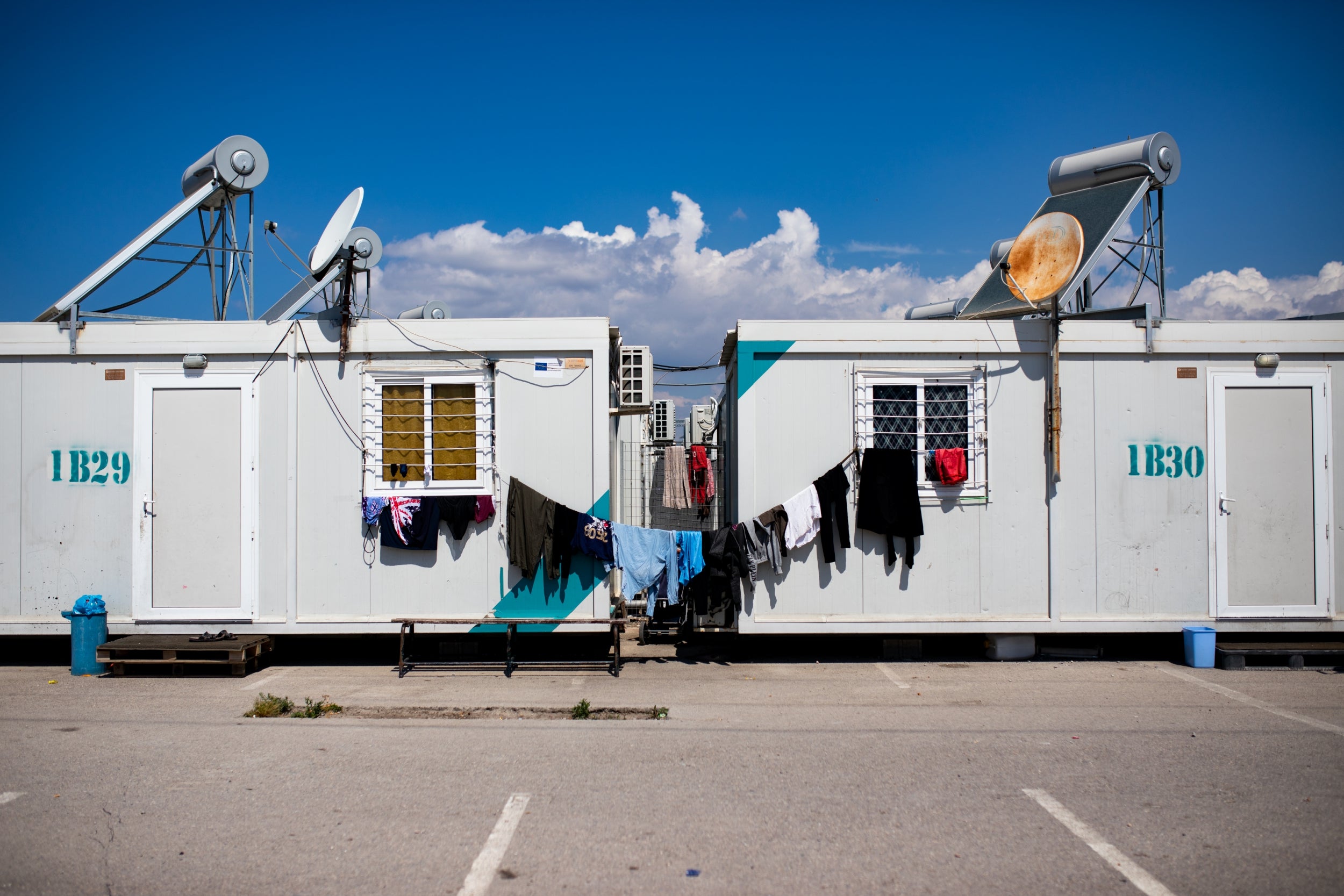
“Racism has always been a way of trying to justifying violence from Europe towards the rest of the world. It’s the same with the situation between men and women. In order to establish that men are superior then you have to create two very different groups and put one is below the other. You always need a discourse of division to justify a hierarchy.”
***
It’s difficult to draw Thuram back into the world of football and the way racism and sexism play out within its narrower confines. He’s aware of the Moise Kean incident last season when a black player from Thuram’s former club Juventus was racially abused throughout a match and was then told be his own captain and coach that he provoked the abuse by celebrating scoring a goal.
“Football can do a lot more,” Thuram says. “But football is a world where there is a need to protect the spectacle. The spectacle is business. And you have to be able to say: ‘there is no problem here, everything is going well’. We are living in a world where the most important thing is money not morals.”
As well as creating his foundation, Thuram has published a book on some of his heroes entitled ‘My Black Stars’ and another called ‘Our History’. In his playing days did he ever imagine this would be his path post-retirement?
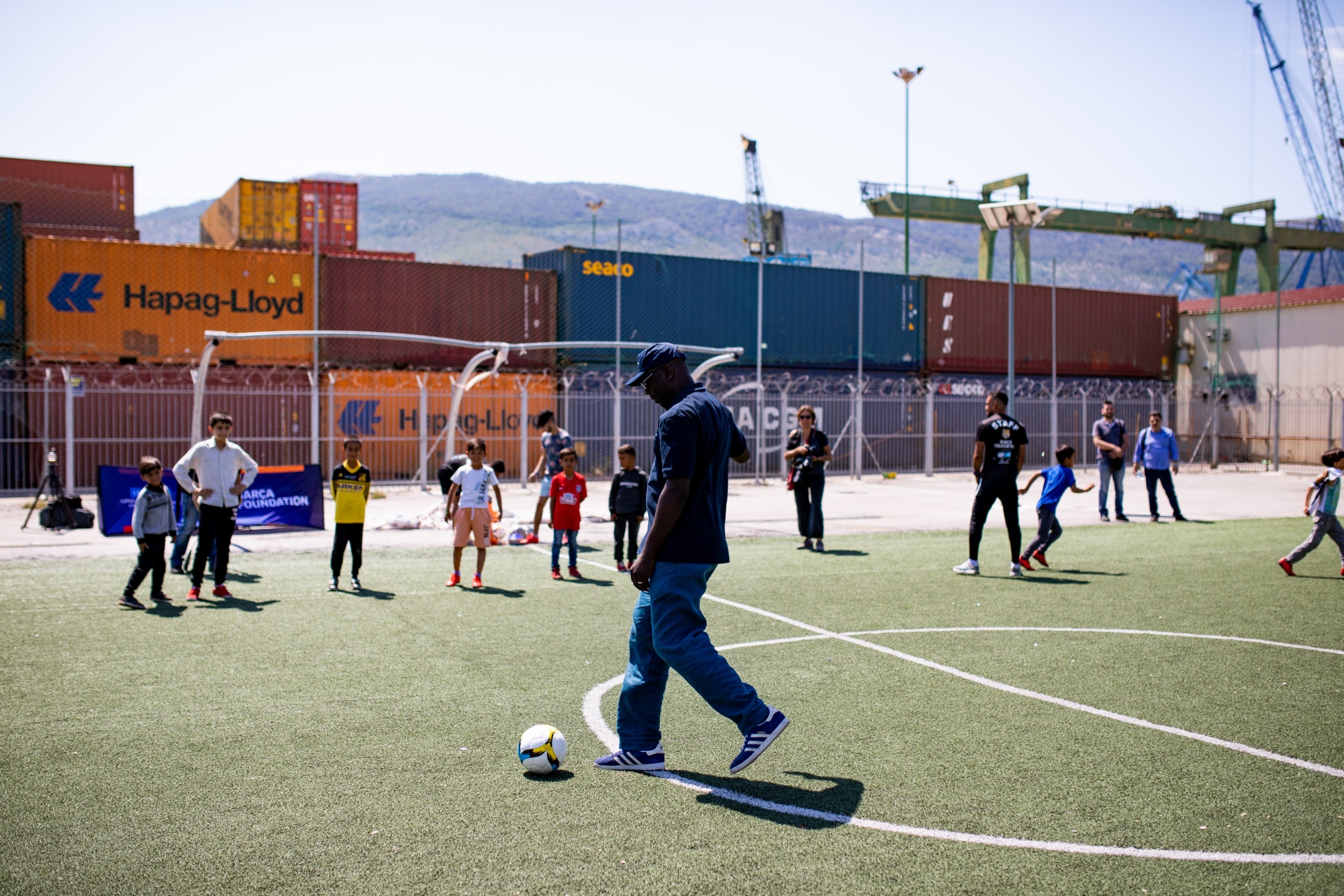
“I thought that I would try to educate myself to better understand why society is the way it is,” he says. “As you can see I’m a person with brown skin and I didn’t understand why racism existed. Now I try to understand it in a historical context. People see through the eyes of their culture and European culture has had this hierarchy based on the colour of people’s skin. Bit by bit I came to understand that the hierarchies are there to justify why one group can take advantage of another.”
***
The joy of the kids playing football is what has stood out. The pitch is not perfect with some squares of turf missing around the corner flag. But that has taken nothing away from the enjoyment.
Back in the centre of the circle at the end of the session Thuram is taking on all-comings with the ‘slaps’ game once more.
One dad shouts advice to his son from the edge of the circle and Thuram invites him in to be his next opponent. After much giggling and some reticence he accepts the challenge soon finding that it was easier to give advice than to put it into practice.
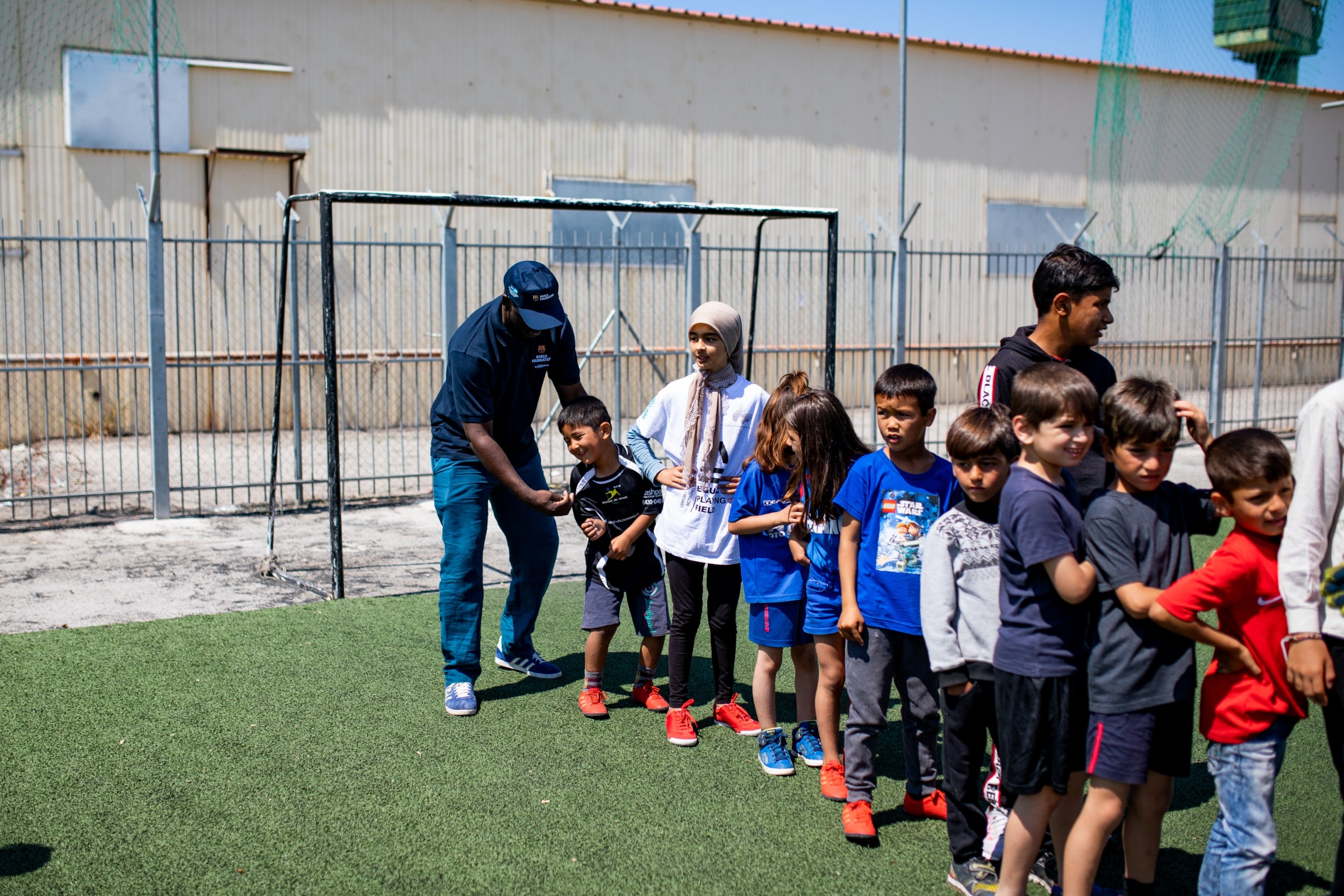
There are quite a few Barça shirts here. A Glasgow Rangers one is spotted two. One boy wearing the Eibar shirt doesn’t seem too happy about being associated with one of La Liga’s minnows. He’s adamant when asked about it, that it’s not his team and that he only wants to play for Bayern Munich.
At the end of the day we go back to eat something in the excellent restaurant run by the refugees, passing the thriving barber shop – all the young men in the camp appear to have slick, well groomed, cuts. “We encourage this informal economy,” says Organisation Earth’s Constantinos.
His positivity pervades all. Thuram has made an impression at Skaramagas too.
Four guys from Congo wander over and began to serenade him with chants of ‘legend legend legend’. He has had his share of adulation during a long successful football career but surely this means even more?
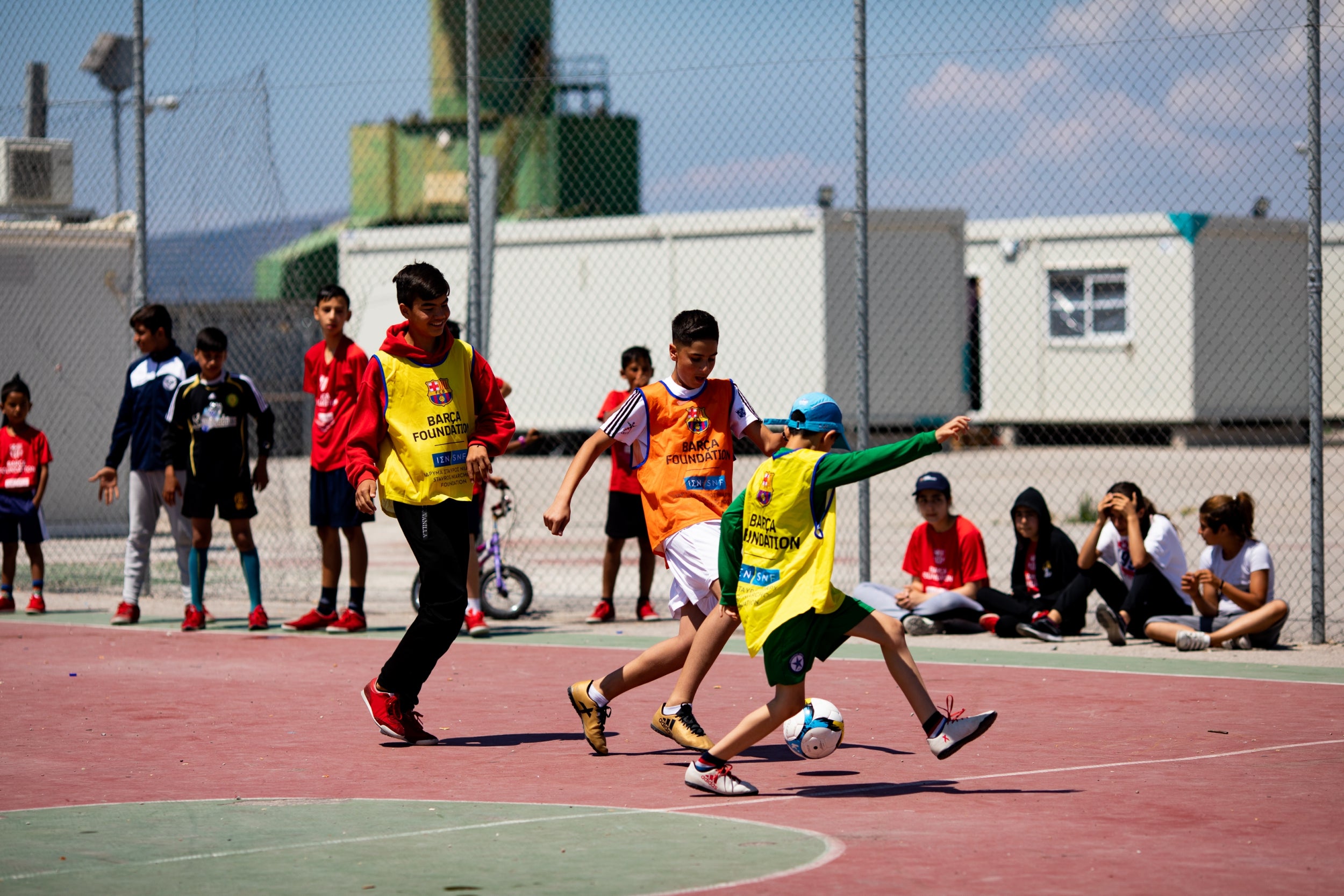
“For me it’s the same because I never forget that they are just guys who like football,” he says.
He stops to chat, and stuns his new friends by talking to them in their native tongue. The grins broaden; they were not expecting that. “When I was a kid growing up close to Paris I had a lot of friends who had come from Congo and so I speak a little Lingala,” he tells me.
Have the things he has seen in the camp left him frustrated that he can’t do more?
“The people here value the same things as you and I,” he says. “They want the liberty to travel, the liberty to dream. The work of the Barça Foundation is important because in the moment when those kids are playing football they are free and they are happy. Look into the eyes of the children and of their parents and you see that.
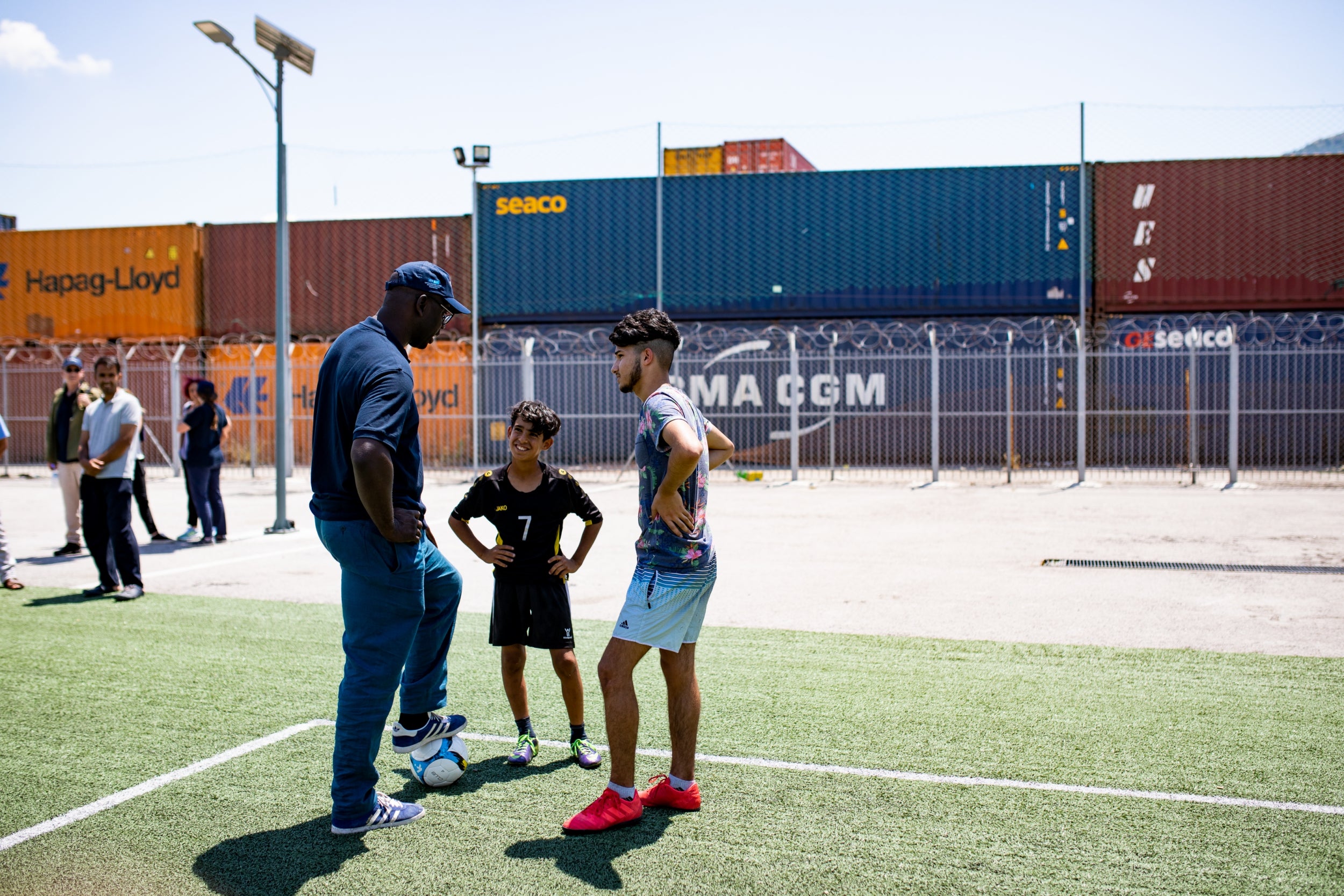
“All around the world people watch and play football because for a little while they can forget about all the other things that give them stress in their lives, and for these people here it’s the same.
“FutbolNet is very important because out on that pitch the kids have no doubts about the possibility of being happy. Life is joy in that moment. They need that.”
Join our commenting forum
Join thought-provoking conversations, follow other Independent readers and see their replies
Comments